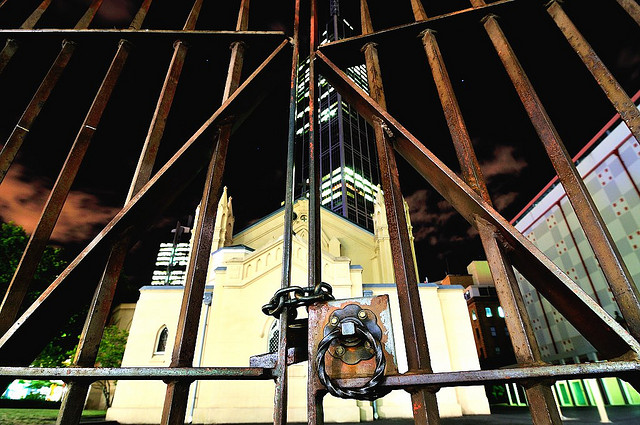Tag: Exclusivity
-

How Does Paganism Reconcile Pagan Bureaucracy?
I’m coming to terms with the truth about why I left the Church. It wasn’t that I had an experience of deity that fell outside of the Church’s teaching. That would come later. My experience of God was always mysterious, never concrete. I was taught that one could, if centered and open, feel a presence […]
-

I Felt Ashamed At Pagan Pride
The circle. The circle is fundamental. This simple shape, along with the square and the triangle, introduces our early minds to geometry, to symmetry, to physical and social design. This past weekend I felt ashamed at Pagan Pride on account of a circle. My body helped form the edge of a circle. My body stood […]

